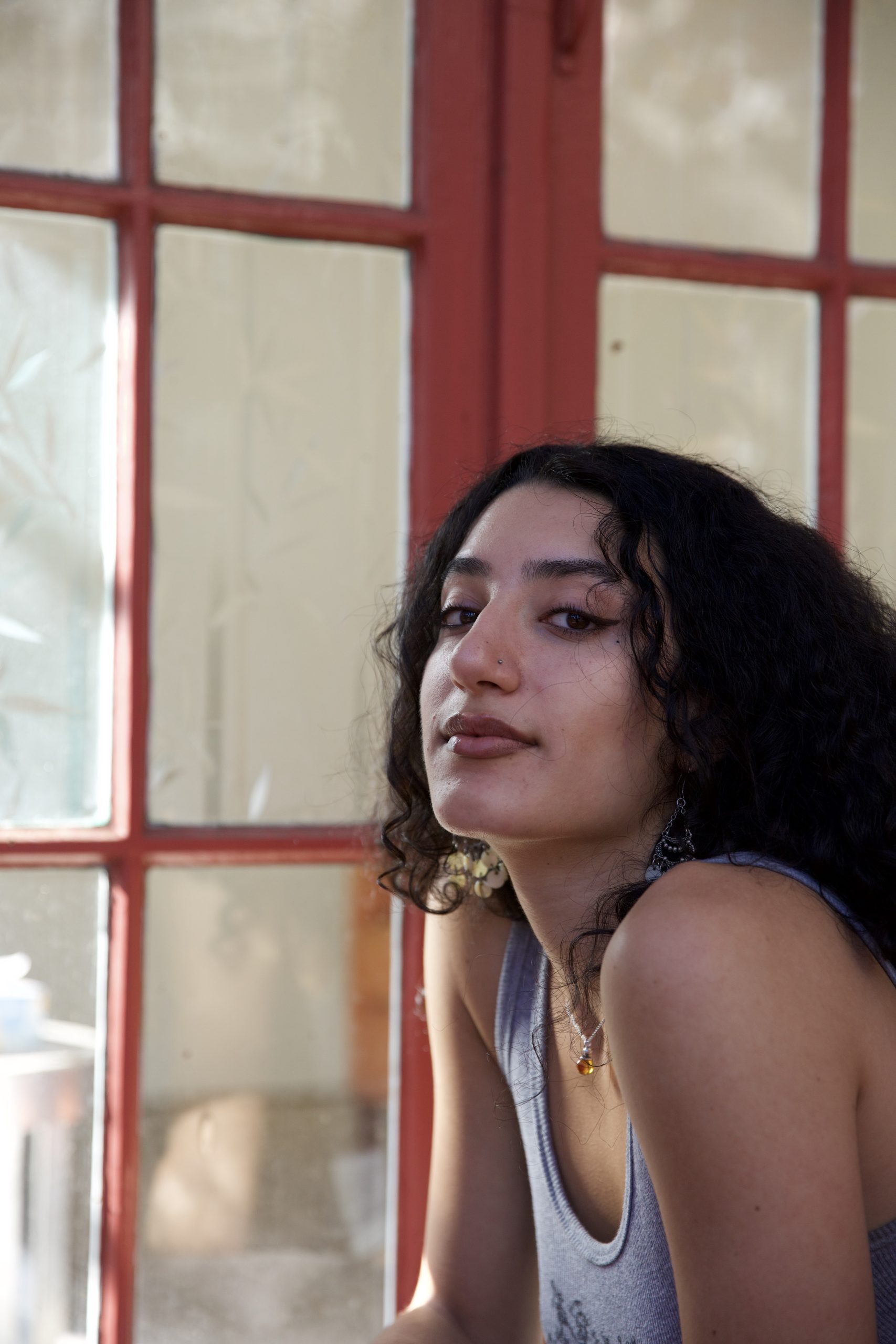Four Questions for Maya Salameh

Author: Emmanuel Henderson
June 6, 2023
Lambda Literary has played a pivotal role in nurturing the development of exceptional new LGBTQ writers through the Writers Retreat for Emerging LGBTQ Voices, internships, and writing and performance opportunities. Supporting emerging LGBTQ writers is central to our mission: they are the future of LGBTQ literature.
The Judith A. Markowitz Award for Exceptional New LGBTQ Writers recognizes LGBTQ-identified writers whose work demonstrates their strong potential for promising careers. The award includes a cash prize of $1,500. This year, the award goes to Maya Salameh and Naseem Jamnia.
Maya Salameh is the author of HOW TO MAKE AN ALGORITHM IN THE MICROWAVE (University of Arkansas Press, 2022) and rooh (Paper Nautilus Press, 2020). She is the youngest-ever winner of the 2022 Etel Adnan Poetry Prize and a Finalist for the 2022 California Book Award. She has served as a National Student Poet, America’s highest honor for youth poets, and received fellowships from the William Male Foundation, the Institute of Museum and Library Services, the Institute for Diversity in the Arts, and Martha’s Vineyard Institute of Creative Writing. Her work has appeared in POETRY, The Rumpus, AGNI, Asian American Writer’s Workshop, and the LA Times, among others. She can be found @mayaslmh or at mayasalameh.com.
How has access to queer literature/queer stories impacted your life as a queer person and shaped you as a queer writer?
Access to queer literature has impacted my life by offering me new horizons of possibility. Queer poetry showed me all the ways I can continue to be not only alive, but living, in front of the countless discourses which eclipse my future. I am thinking especially of the poetry of Franny Choi, Etel Adnan, and Danez Smith.
What’s your favorite part of the writing process (besides finishing)?
My favorite part of the writing process is returning to a poem I haven’t touched in months and finally realizing its music. Being able to come back to old work with fresher eyes always feels like such an invigorating way to edit. Returning to an old poem and absolutely blowing up its original form – deciding a sonnet is a prose poem or a contrapuntal can be a palimpsest – feels like such a fun way to play with my writing.
What’s your emotional support writing habit?
My emotional support writing habit is verbing nouns (lol).
What’s next for you?
I’m working on my next collection! I’m also always working on integrating more play into my practice, allowing myself room for experimentation and failure, which is where I think the most magic happens.

